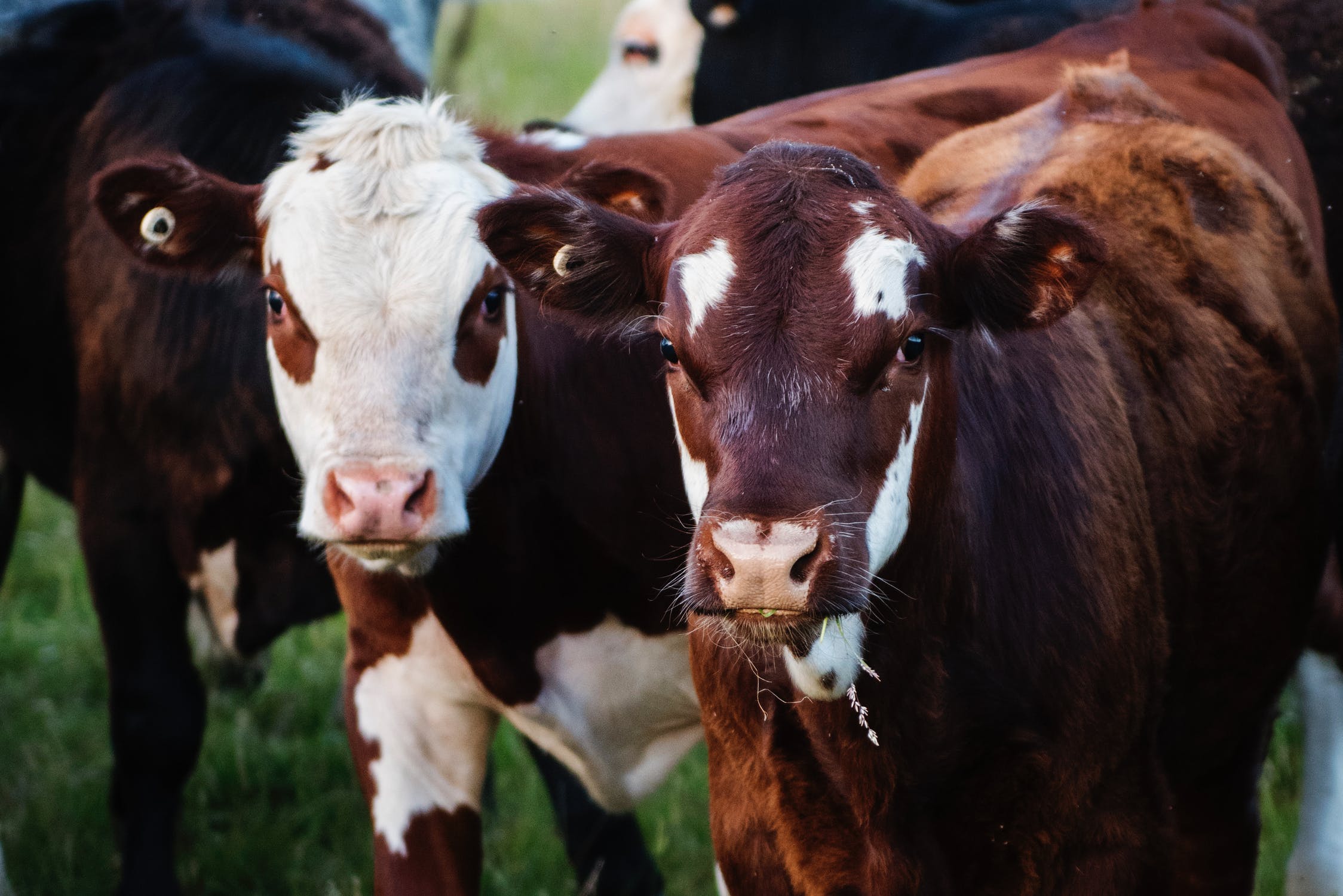Cow masks? Come on, let’s get real; bovine belches just part of life on the farm

With much fanfare, U.S. Department of Agriculture Secretary Tom Vilsack held a media event at Lincoln University on Feb. 7 to unveil “Partnerships for Climate-Smart Commodities.” The new program will provide $1 billion to support America’s climate-smart farmers. When it comes to doling out big bucks very few critical words will be uttered by farm organizations. They get it: Don’t turn your bowl upside down when it’s raining soup.
I grew up on a Wright County dairy farm and have been directly involved in Missouri’s dairy industry throughout my professional career. Here’s what I believe the climate-smart program will do for Missouri beef and dairy farmers. I have no soup bowl; freedom to speak is gratifying.
Missouri has a cow population of 4,350,000 cows (includes calves). Cows emit methane primarily in the form of burps and belches. The EPA says cows account for 31.5 percent of all methane emissions in the U.S., and methane is up to 80 times more potent than carbon dioxide as a greenhouse gas. I believe Secretary Vilsack’s climate-smart partnership with farmers marks the beginning of powerful efforts that will damage animal agriculture.
Last November, beef and dairy farmers were dragged into the climate fray at the U.N. COP26 climate conference in Glasgow. Both President Joe Biden and Secretary Vilsack attended the conference. The president in his address to global leaders committed our nation to the “Global Methane Pledge.” He unequivocally stated the U.S. will reduce methane emissions 30 percent (of 2020 level) by 2030.
Then, Secretary Vilsack, building on President Biden’s pledge, launched “Pathways to Dairy Net Zero,” a commitment to reach zero greenhouse gas emissions in the dairy industry by 2050. Both programs will inflict pain on Missouri agriculture.
A cow’s ability to convert cellulose to milk and meat is a marvel, but methane is a byproduct of the process. Controlling bovine belches is going to be problematic. Nevertheless, two methane control techniques for cattle are making news. The first is daily dietary supplements that reduce digestive gas production — think bovine Beano. Cows out on pasture may need to be rounded up daily for their supplement, but that’s the cattleman’s problem, not Secretary Vilsack’s.
The second control method is the methane-absorbing cow mask — not joking. Two companies, Zelp Ltd. and Cargill Inc., are racing to perfect the device. It consists of a small catalytic converter strapped above the cow’s nostrils. Cargill plans to begin marketing the mask in Europe by June 1. It will retail for about $80. The catalytic converter thieves are going to love this new technology.
Sometimes it seems common sense may have flown right out the window at USDA. Even if we never get around to controlling cow burps, dairy operators and cattlemen have already been damaged by the administration’s climate change commitments. Powerful ammunition has been provided for climate activists, “factory-farm” opponents, and vegans that believe no one should be eating hamburgers and steaks. Social media is already awash with calls to eat less meat or no meat. Milk will be next.
The second-largest methane source in the U.S. is petroleum/natural gas production which accounts for 30 percent of the total emissions. EPA is presently drafting strict new regulations to control those emissions. The green-new-deal crowd is already demanding similar rules for cattle operations. And no regulation seems too unreasonable for someone who believes climate change is an existential threat giving us a mere 10 years until we reach the point of no return.
Most Missouri farmers live in Realville, and they often tend to ignore inflated rhetoric coming out of Washington. It’s time to pay attention. We need to be wary of programs like climate-smart that embed harmful policies and regulations into federal agencies. Even if the current administration is replaced, it can be very difficult to undo its previous deeds.
Ron Boyer was a member of the Missouri Air Conservation Commission. He is a retired farmer and chemist who served on the Missouri State Milk Board from 1995 to 2007.
Miss Clipping Out Stories to Save for Later?
Click the Purchase Story button below to order a print of this story. We will print it for you on matte photo paper to keep forever.

